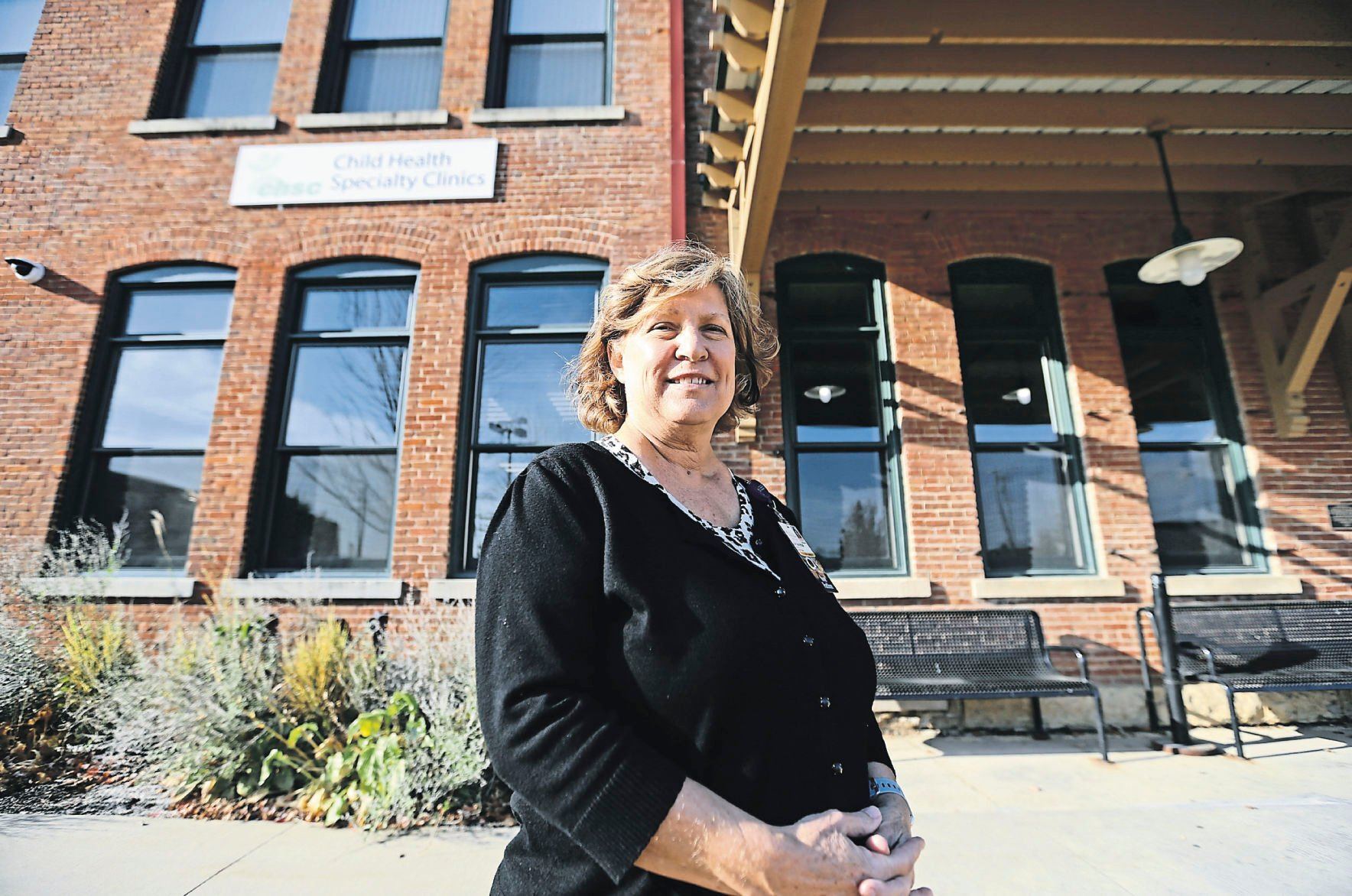University of Iowa Child Health Specialty Clinic is located at 789 Elm St., Suite B, Dubuque.
The clinic is open 8 a.m. to 4:30 p.m. Monday through Friday.
Call 563-583-5545 or toll-free 888-588-0903 for more information.
Mary Drury describes her clinic’s services as a beacon for families of kids navigating the murky journey through mental and behavioral health issues.
“We want to be a lighthouse,” Drury said. “We want to be where you call so you can get information from the beginning.”
Drury is a pediatric nurse practitioner specializing in mental health at Child Health Specialty Clinic in Dubuque.
Part of University of Iowa Carver College of Medicine and Stead Family Department of Pediatrics, the Dubuque clinic annually serves about 800 youth.
It is one of a series of regional centers in the state, joining locations in Bettendorf, Carroll, Clinton, Creston, Decorah, Fort Dodge, Johnston, Mason City, Oelwein, Ottumwa, Sioux City and Spencer.
“Our regional centers are not restricted to kids from specific counties, so families generally go to the regional center that is closest to them, but it is not a requirement,” said Dr. Tom Scholz, University of Iowa Health Care’s director of the Child and Community Health division, which includes the specialty clinics.
Statewide, the clinic system employs more than 100 health care professionals. In partnership with Iowa Department of Public Health, the clinics administer Iowa’s Maternal and Child Health Title V Program for children and youth with special health care needs.
“This program is the oldest federal-state (public health) partnership in the United States, enacted in 1935 as part of the Social Security Act, to promote the health of children and pregnant women,” Scholz said.
The program integrates federal, state and local funding to meet children’s health needs.
“For every $4 of federal funds, states must provide at least $3 in state or local matching funds,” Scholz said.
University of Iowa originally operated a series of field clinics. Through the years, these clinics were renamed the Child Health Specialty Clinics.
Modern Child Health Specialty Clinics opened at various Iowa locations beginning in 1977. Dubuque’s clinic opened in 1988.
It differs from other University of Iowa pediatric outreach efforts, in which specialists such as cardiologists or endocrinologists visit communities to see young patients.
“Pediatric specialty services are available in Dubuque and are part of the clinical outreach program,” Scholz said.
Instead, the Dubuque clinic serves patients through three programs.
The Community Circle of Care program offers coordination of care for children with serious behavioral or mental-health needs. Health-care workers in the program offer assessment and diagnosis, family team meetings and coordination of care.
“We have nurse practitioners in our sites, and we also have the ability to link with child psychiatrists through a telehealth system,” Scholz said.
The Pediatric Integrated Health program provides similar coordination and support services for Medicaid-eligible children. In this program, a clinic care coordination team helps children and families receive necessary help by working with a child’s local physician, school staff, therapists and others.
The Iowa Regional Autism Assistance program provides clinical consultation, care planning and family-to-family support for children along the autism spectrum.
Dubuque’s clinic had been located downtown in the Nesler Centre. Its relocation was dwarfed by more pressing health issues.
“We moved to our Elm Street location two months before COVID hit (in 2020),” Drury said.
The new location is better-suited to patient access and care, Drury said. The Elm Street clinic offers free parking, lies on a Dubuque bus line and is near another medical facility.
“We are across the street from Crescent (Community Health Center),” Drury said.
The Elm Street location also provided the clinic space at an opportune time.
“We had enhanced our care coordination services,” Drury said.
She has been with the clinic for 14 years.
“I came on board with the Community Circle of Care program,” she said.
That program used federal funding to create a regional system of behavioral and mental-health care for children who did not qualify for Medicaid coverage.
“We’re a gap-filling service,” Drury said. “We fill gaps for care coordination. We don’t intend to compete with places like Hillcrest.”
Instead, Drury said the university’s clinic seeks to usher children into the system by skirting barriers to care.
“In the mental health world, patients often have to go through somebody else to receive care,” she said. “We want someone to be able to call and talk to somebody that day. Then, we encourage people to get back to a local provider when they are stable. It’s a nice back and forth.”


